AITA for telling my sister to stop being a child and get a life?
In the delicate world of medicine, boundaries aren’t just guidelines—they’re lifelines. Our story today comes from a 37-year-old GP who has long held a firm rule: she won’t provide medical care to family or friends except in extreme emergencies. This principle has kept her both professionally sound and personally grounded, until one morning when a simple call from her cousin tipped the scales. Despite her strict policy, she drove over to check on a worried three‐month‐old, only to later face unexpected criticism from her own sister.
Family dynamics can be as unpredictable as the cases in a busy clinic. After helping her cousin manage a minor cold with clear, practical advice, the incident quickly became fodder for family gossip—especially after a Facebook post. When her sister berated her for not “checking on” her 8-year-old daughter in a similar situation, our GP felt compelled to defend her professional boundaries. It’s a scenario that challenges the balance between duty and familial expectations.

‘AITA for telling my sister to stop being a child and get a life?’
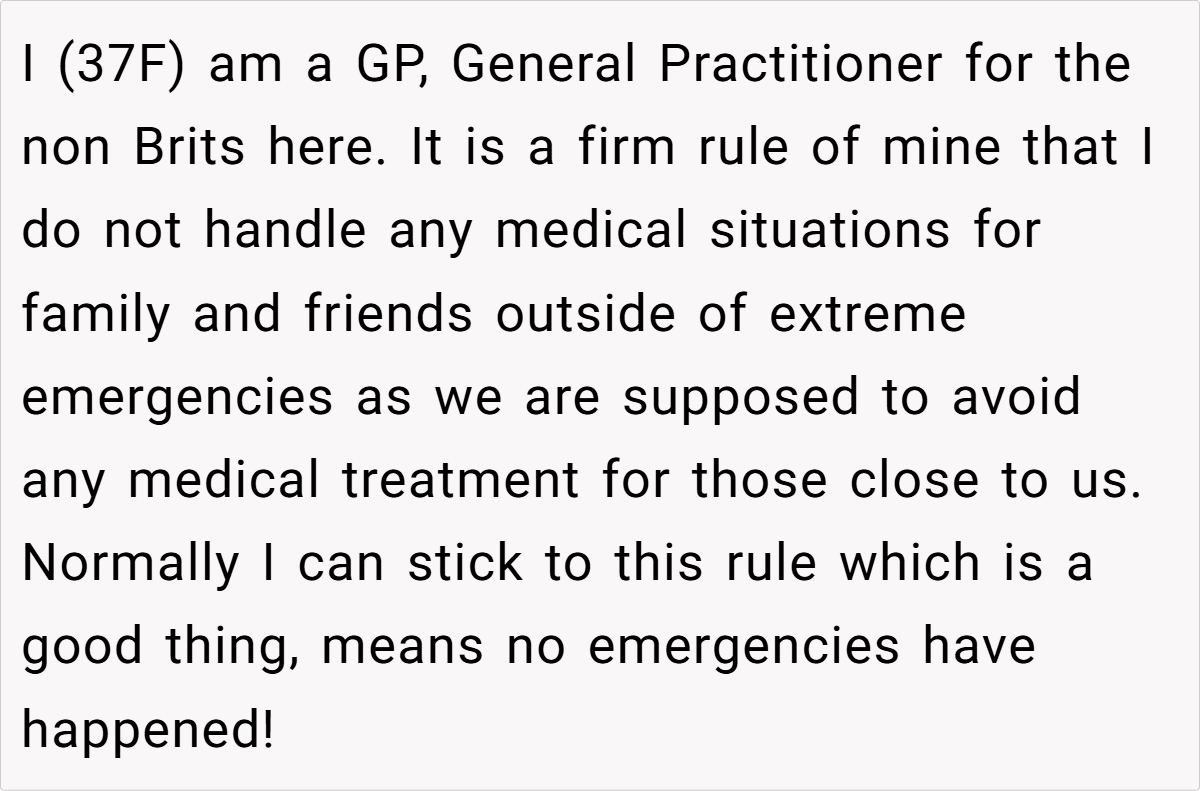
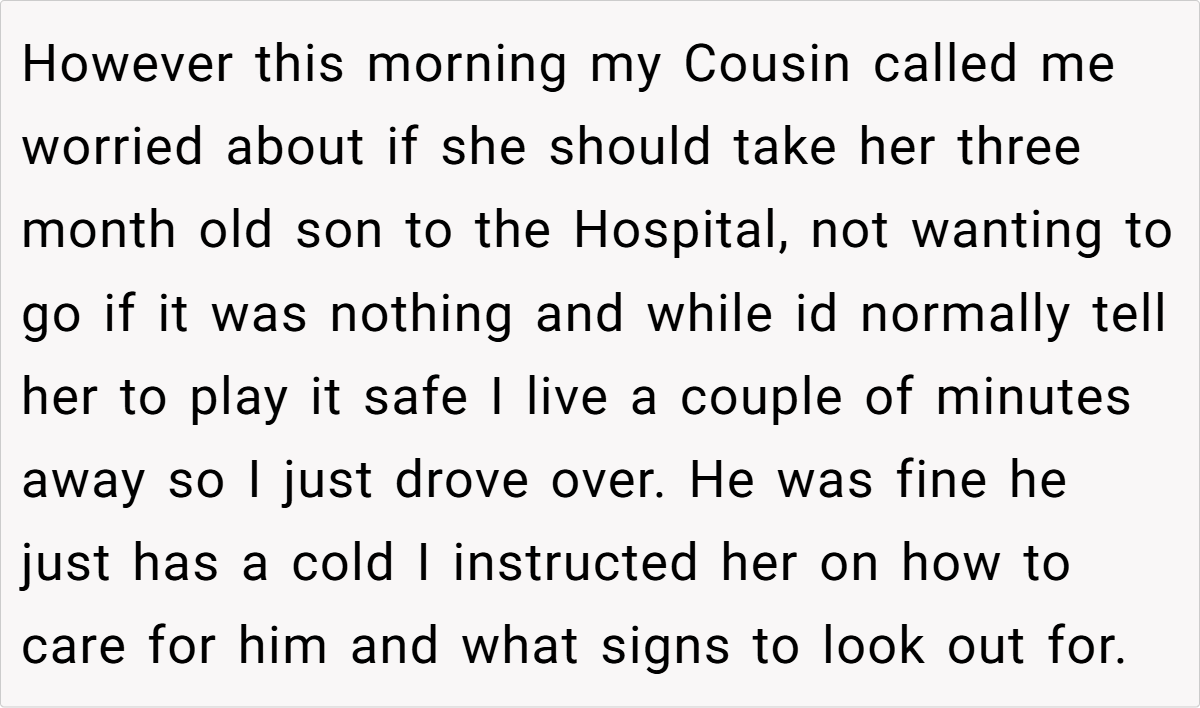
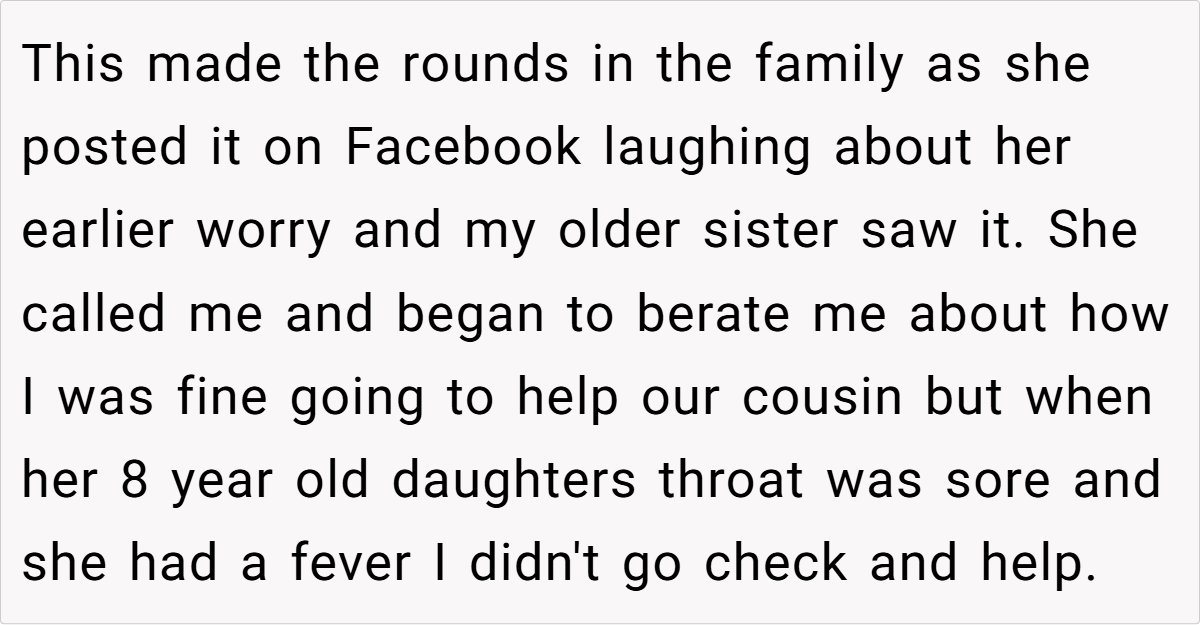
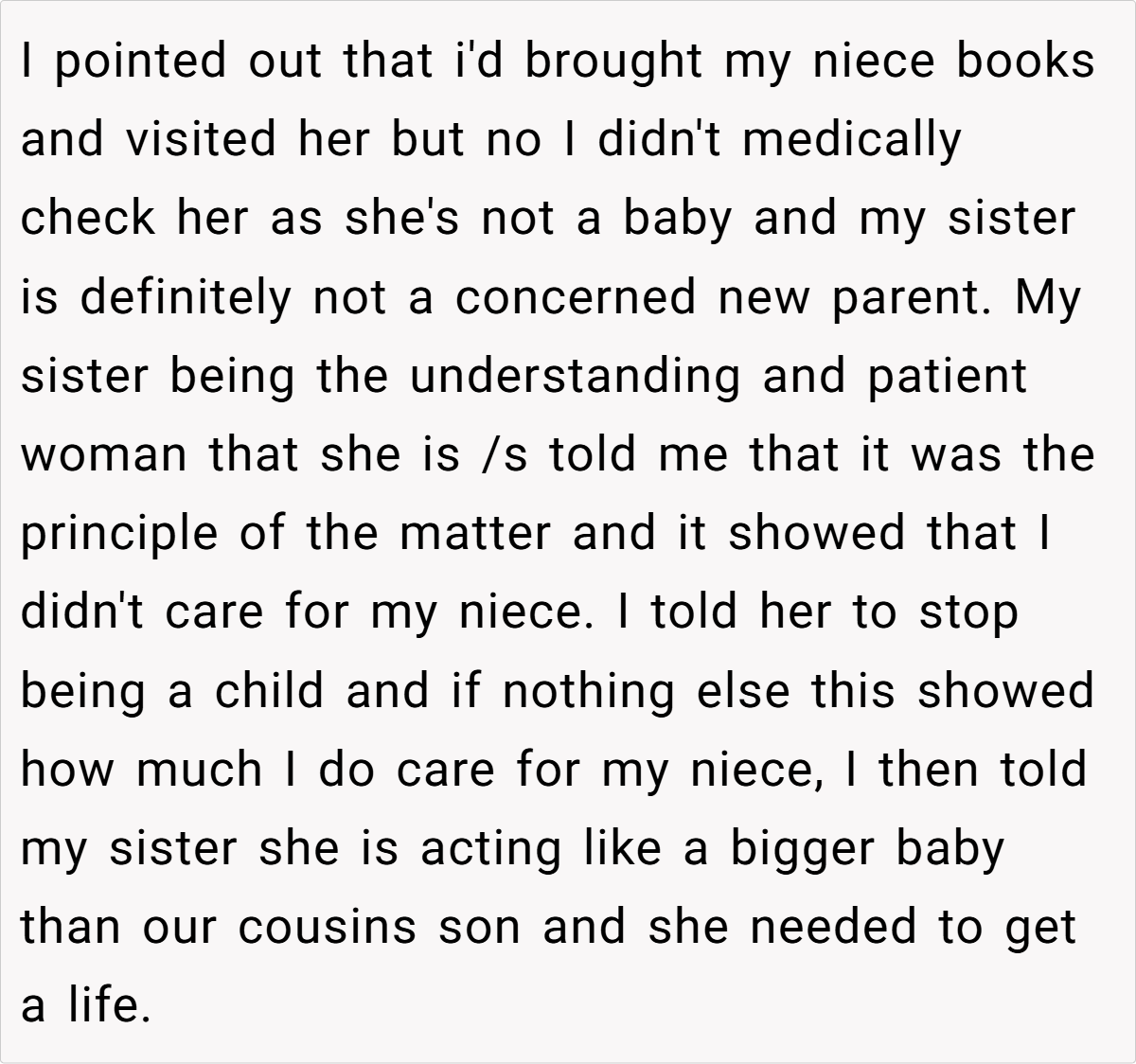
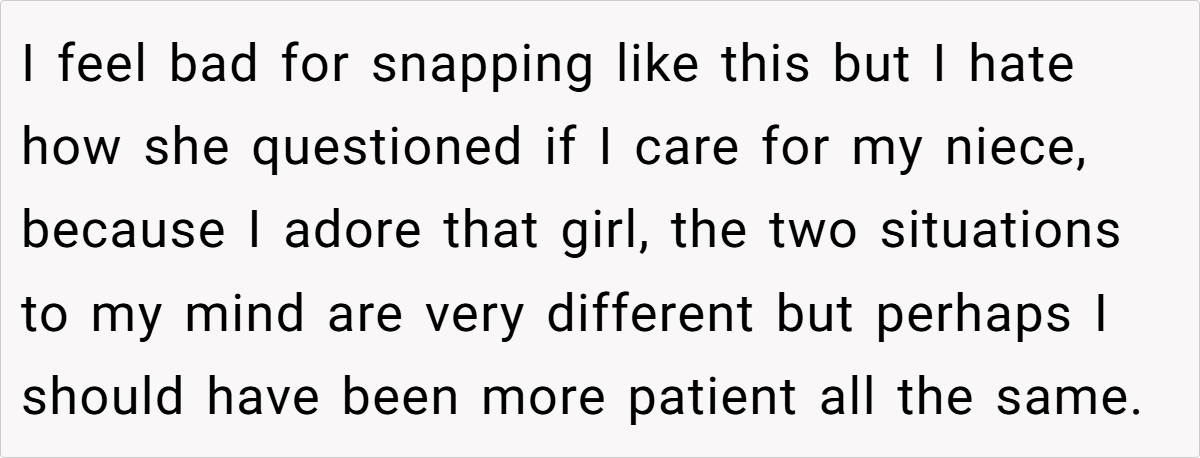
Maintaining professional boundaries is a cornerstone of ethical medical practice. For many physicians, especially those in family medicine, treating relatives or close friends poses a significant risk of compromised objectivity. As the American Medical Association advises, “Physicians should refrain from treating themselves or their immediate family except in emergency situations.” This guideline isn’t meant to diminish care but to ensure that medical decisions remain unbiased and firmly rooted in clinical objectivity.
When emotions are involved, the line between professional duty and familial care blurs. In our GP’s case, her decision to attend to her cousin’s three-month-old was driven by both proximity and the undeniable vulnerability of an infant. Babies, unable to communicate their discomfort, rely entirely on the adults around them to assess their needs. In contrast, an 8-year-old can often articulate symptoms clearly, reducing the need for immediate intervention from a trusted professional.
It’s important to recognize that her sister’s expectation—that a doctor should always be on call for family members—overlooks the ethical foundation of medicine. In family medicine, adhering to strict boundaries isn’t a lack of compassion; it’s a safeguard for both patient and doctor.
This approach prevents the blurring of roles that can lead to misunderstandings, misplaced trust, or even suboptimal care. By visiting her cousin, our GP acted in accordance with the higher standard of care expected in critical moments, while also protecting her professional integrity.
Broadening the perspective, this incident reflects a common dilemma many medical professionals face. While familial love often compels us to help, the reality of medical practice requires that we sometimes say “no.” The ethical stance here is clear: treating family members outside of emergencies can lead to a conflict of interest and unintended bias. Respecting this boundary ensures that all patients receive objective, high-quality care. It’s not a question of not caring, but of caring wisely—preserving both professional credibility and personal well-being.
Ultimately, our GP’s experience serves as a reminder that the principles guiding medical ethics are in place for a reason. They protect the sanctity of the doctor-patient relationship and, in turn, safeguard the health of everyone involved. By standing firm in her values, she not only upheld her professional integrity but also set a precedent for respecting boundaries—even when those boundaries are challenged by family expectations.
Take a look at the comments from fellow users:
Here are some hot takes from the Reddit community—candid, humorous, and refreshingly blunt. The responses echo a resounding “NTA” (Not the Asshole), with many praising her for upholding ethical standards and drawing a clear line between professional duty and familial obligations.
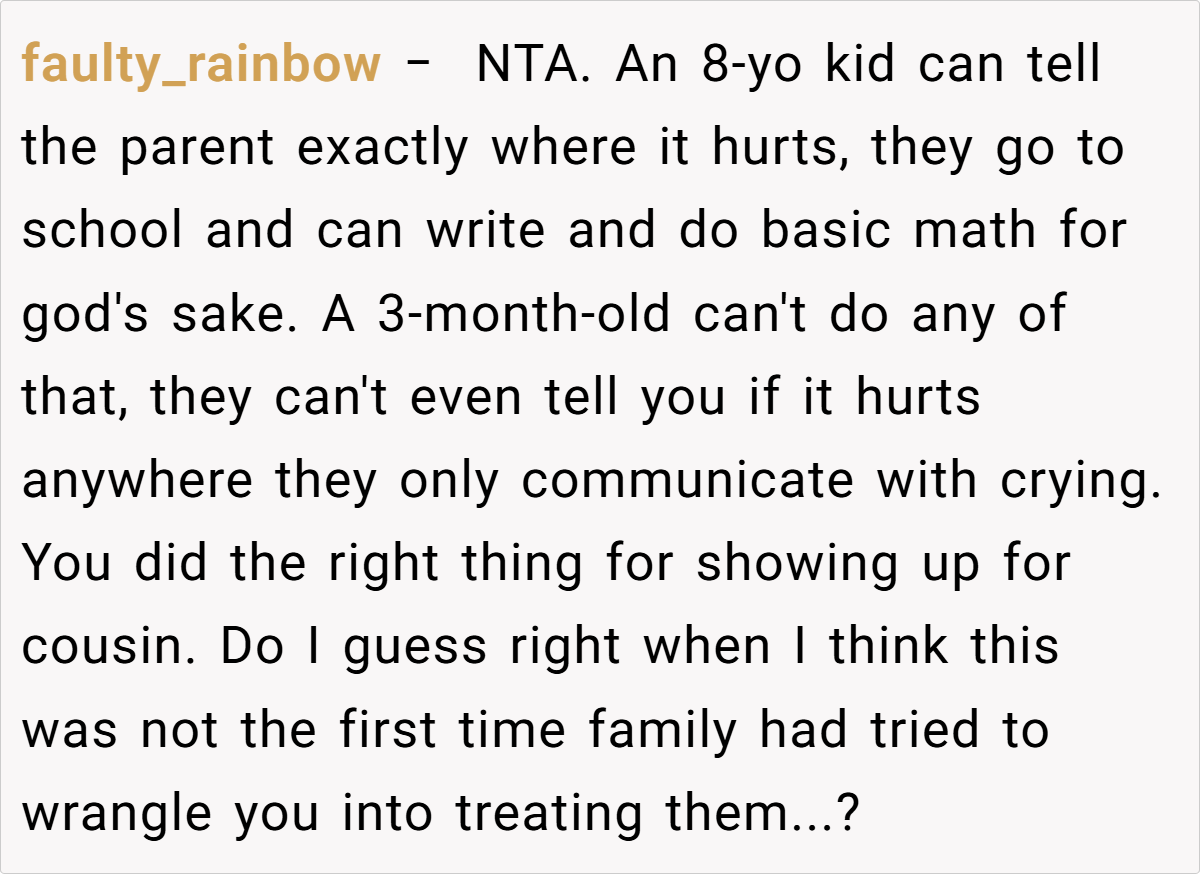
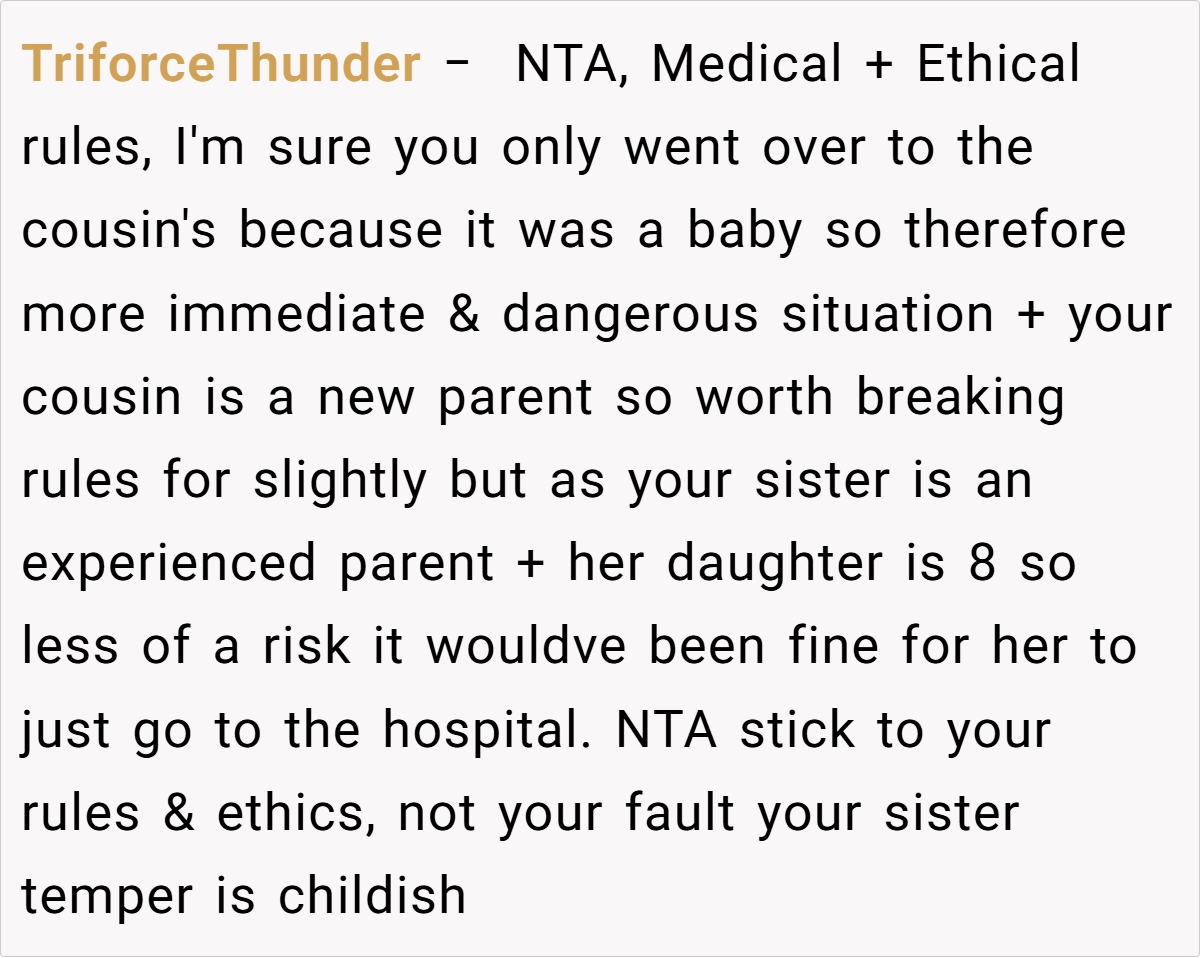
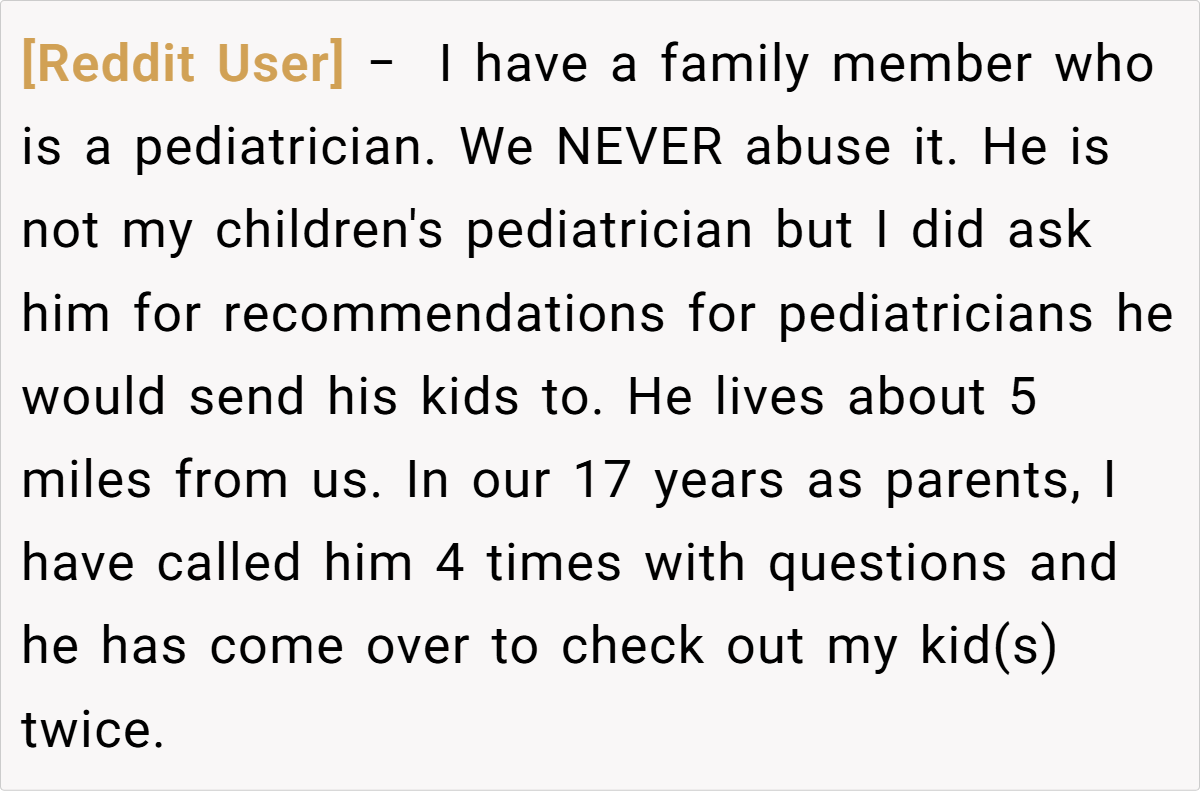
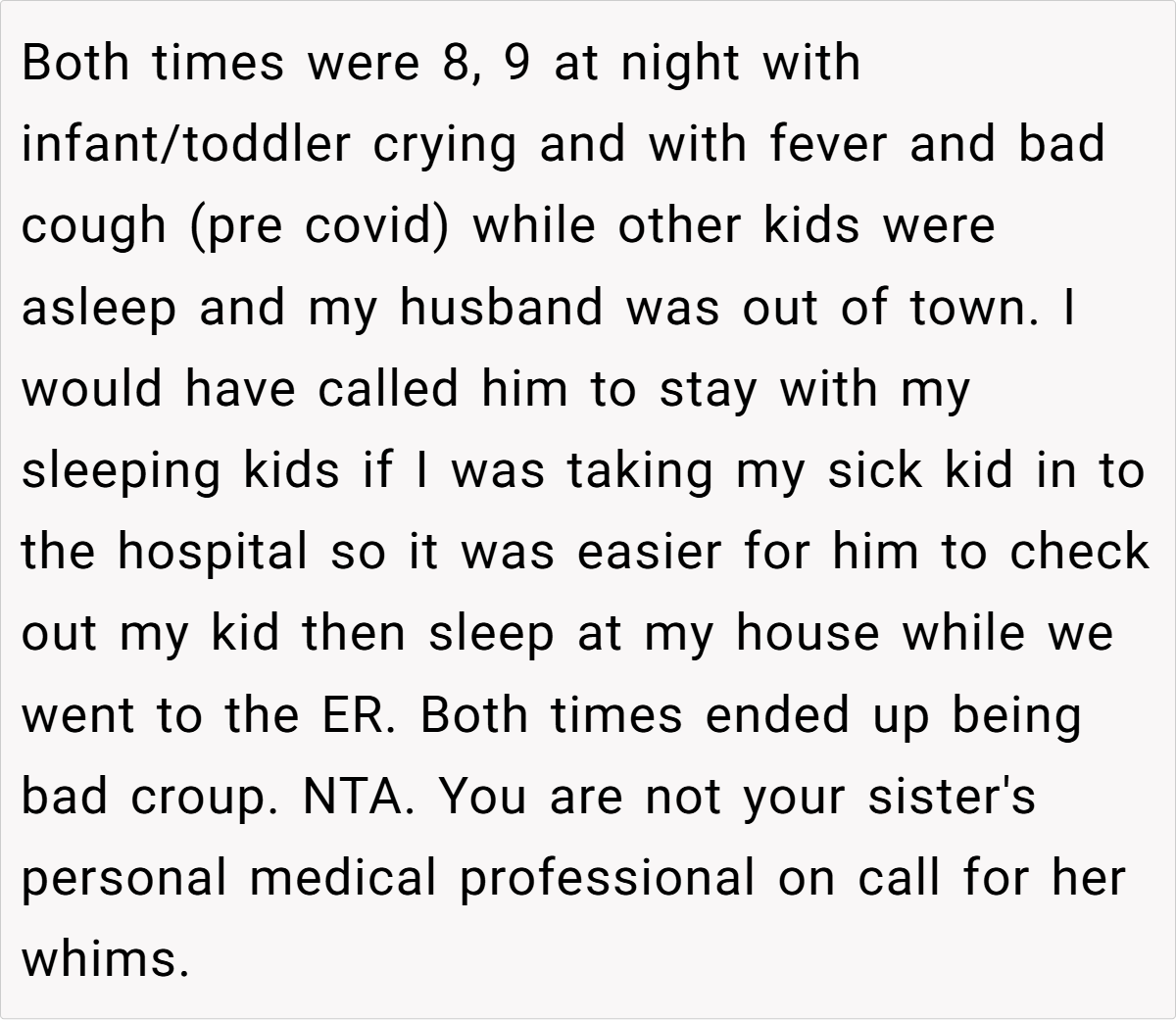
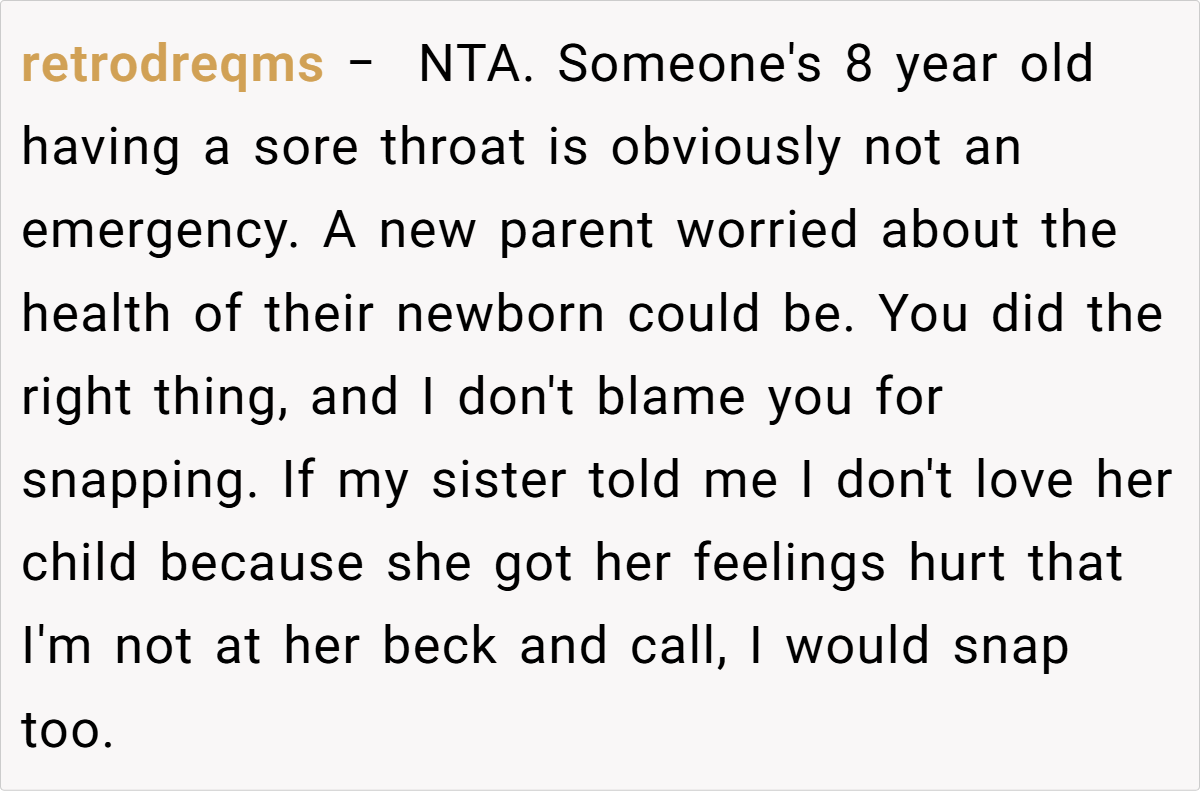
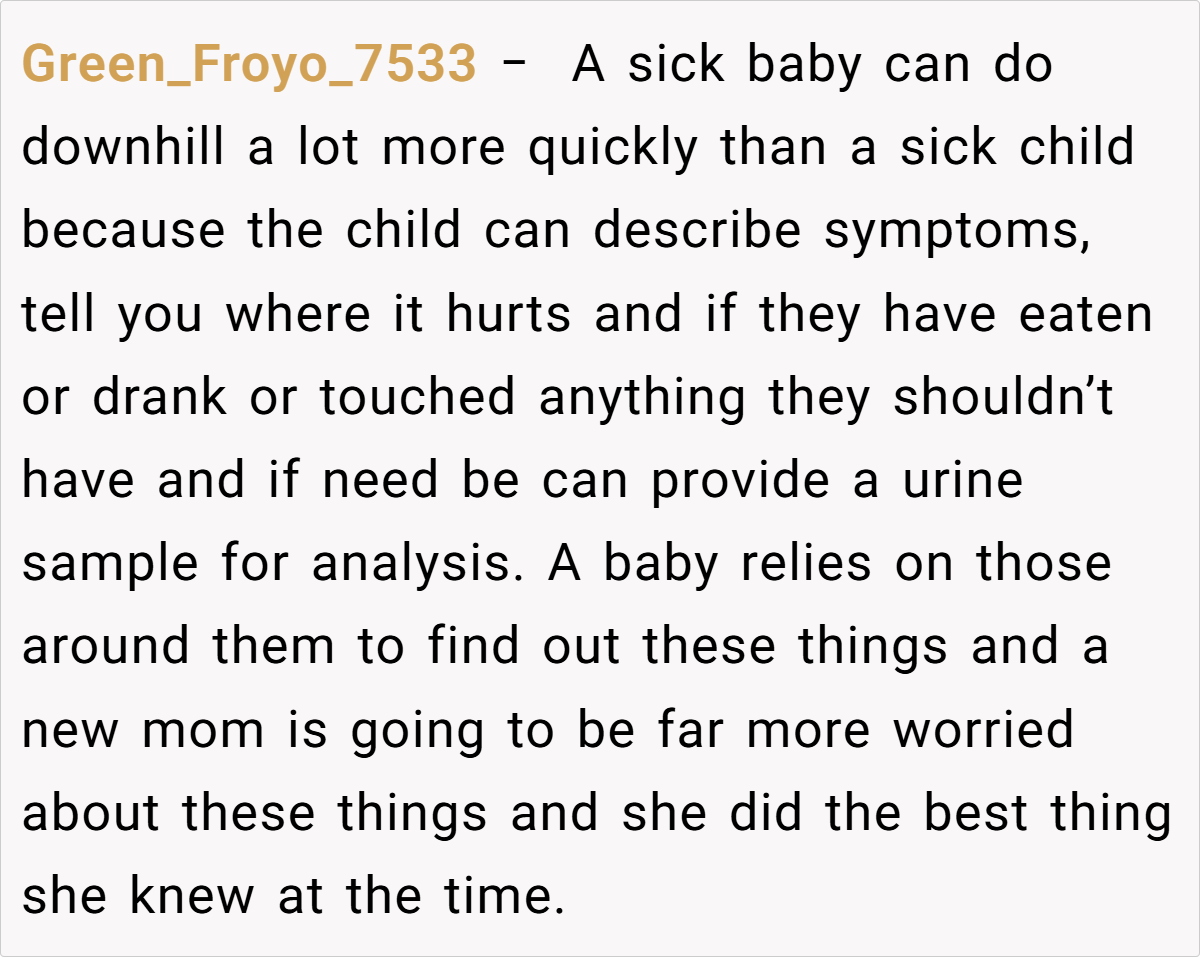
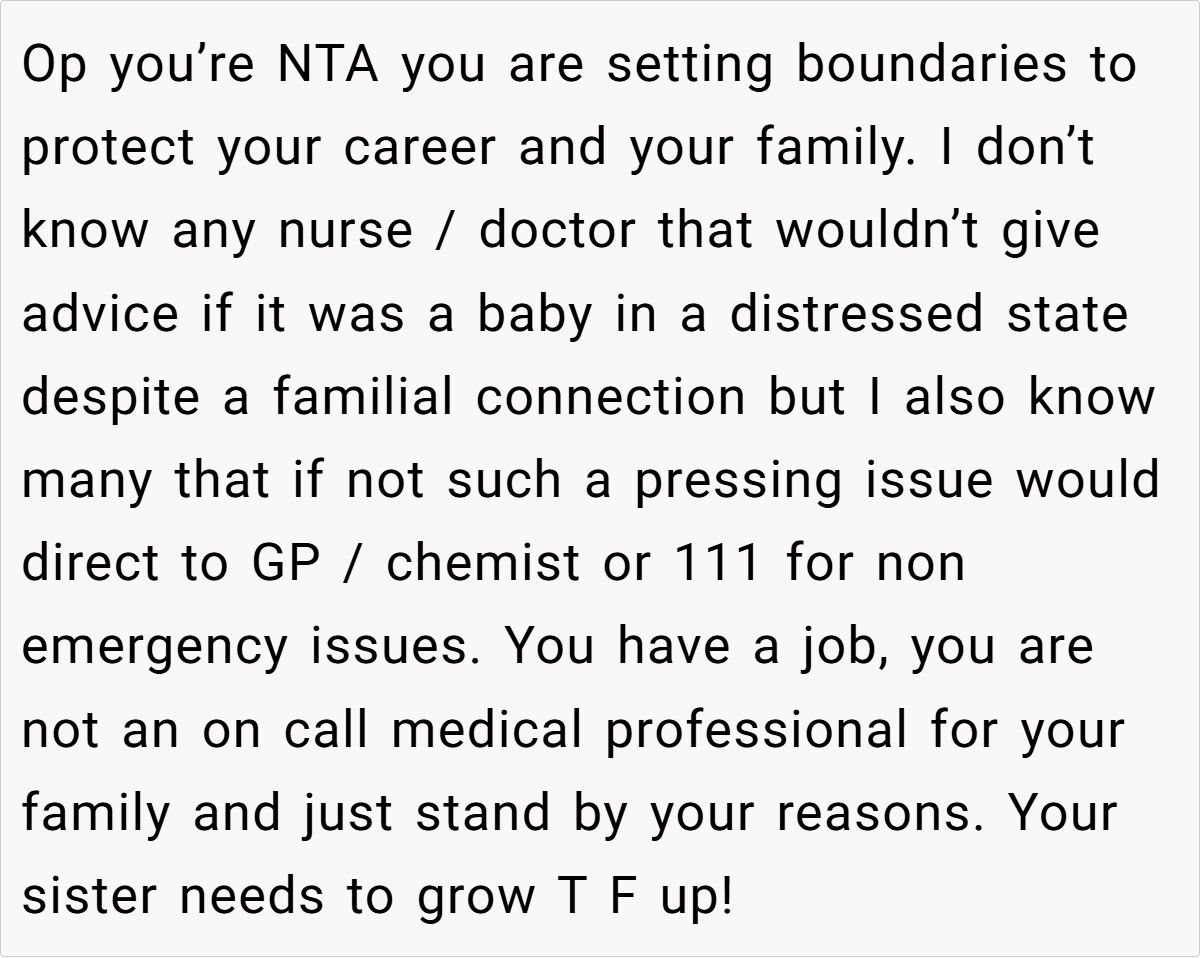


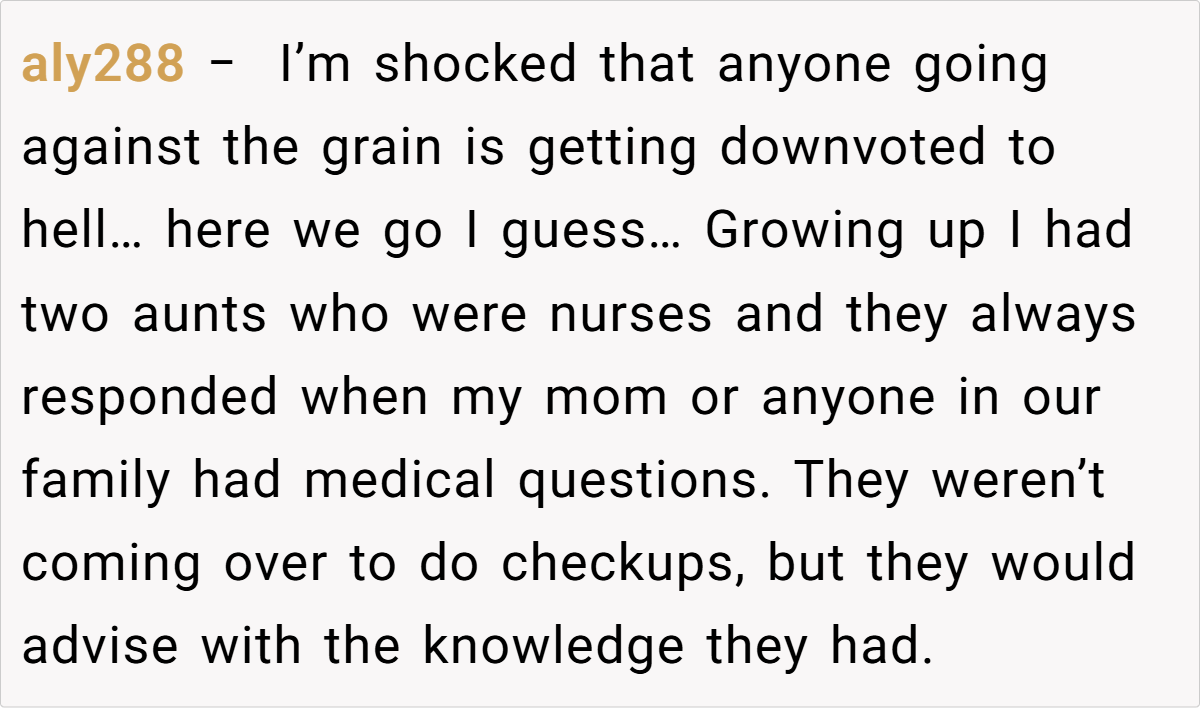
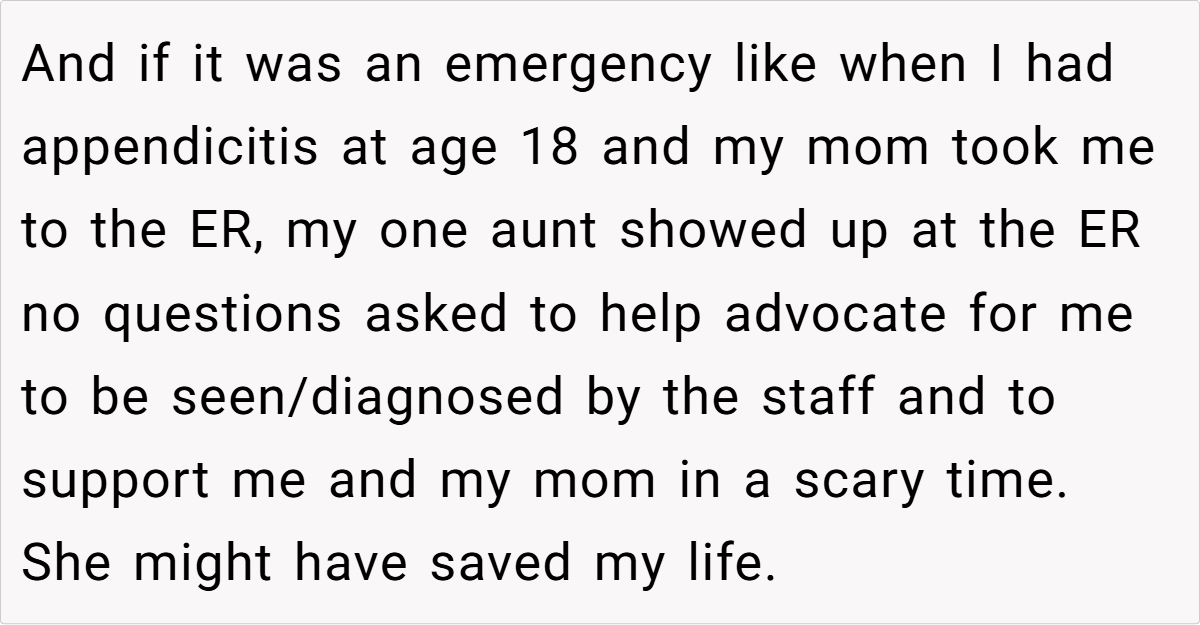
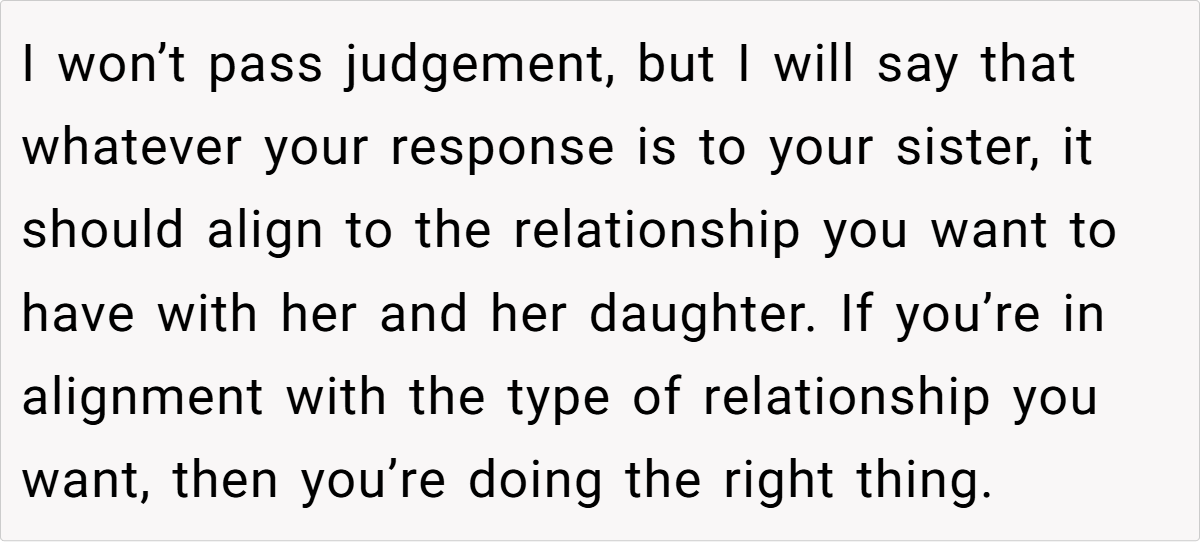
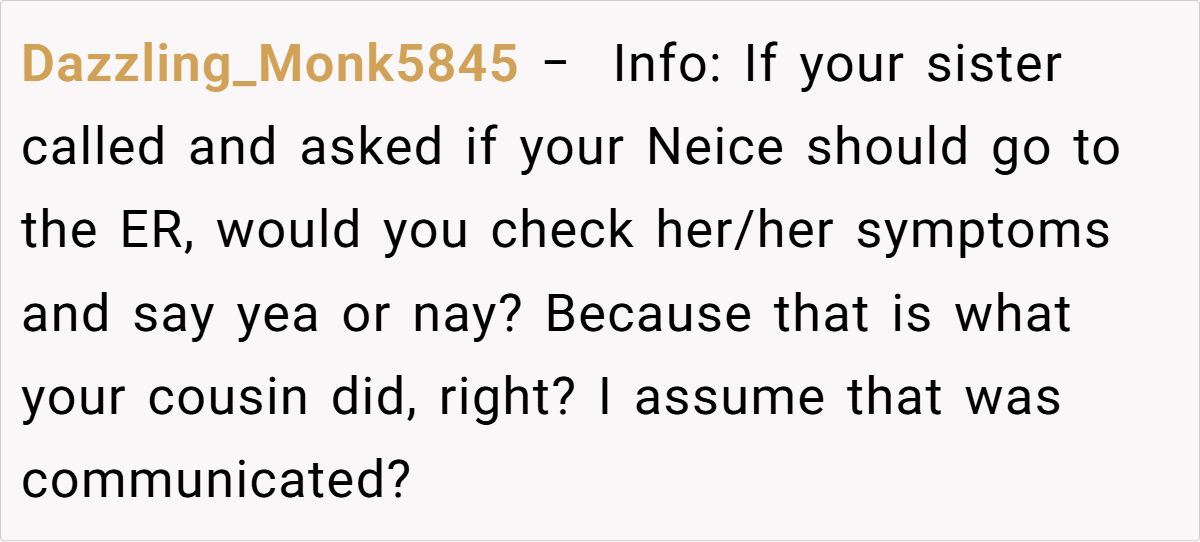
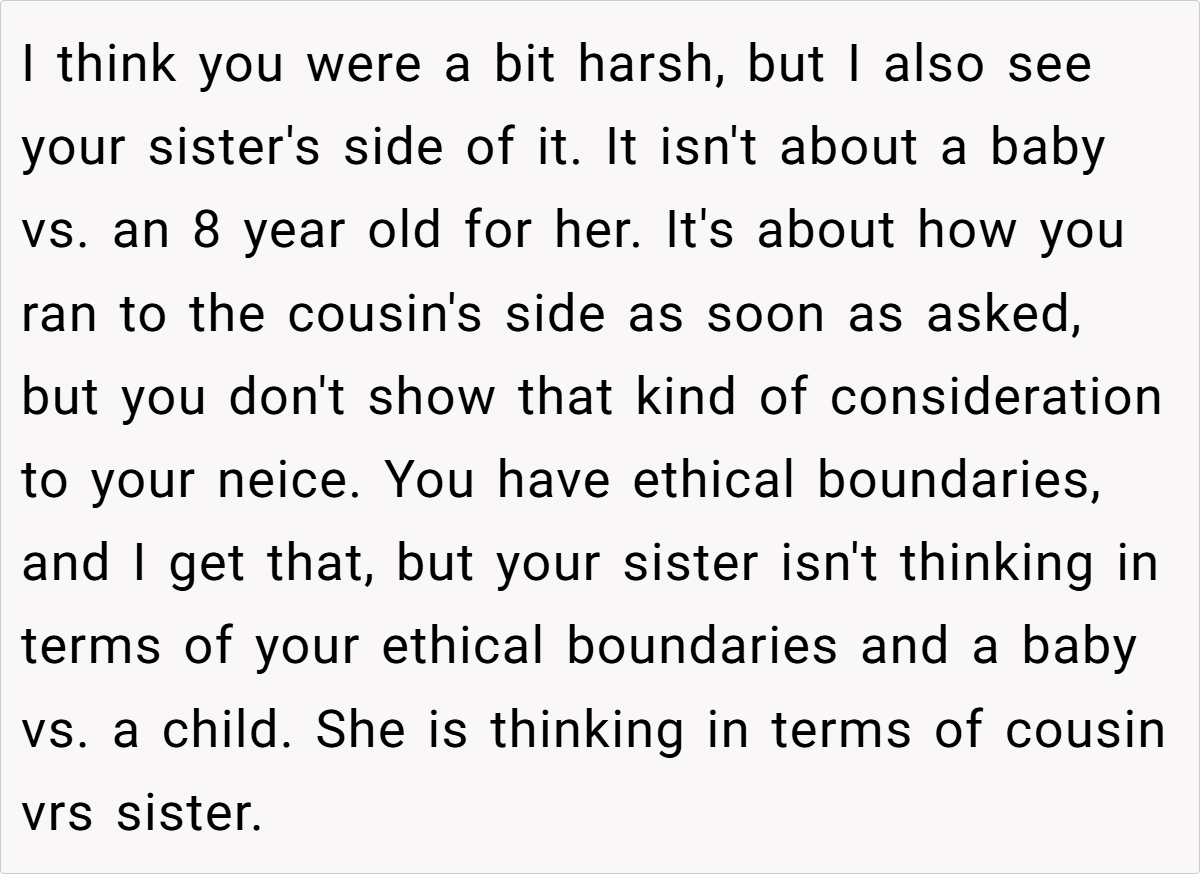
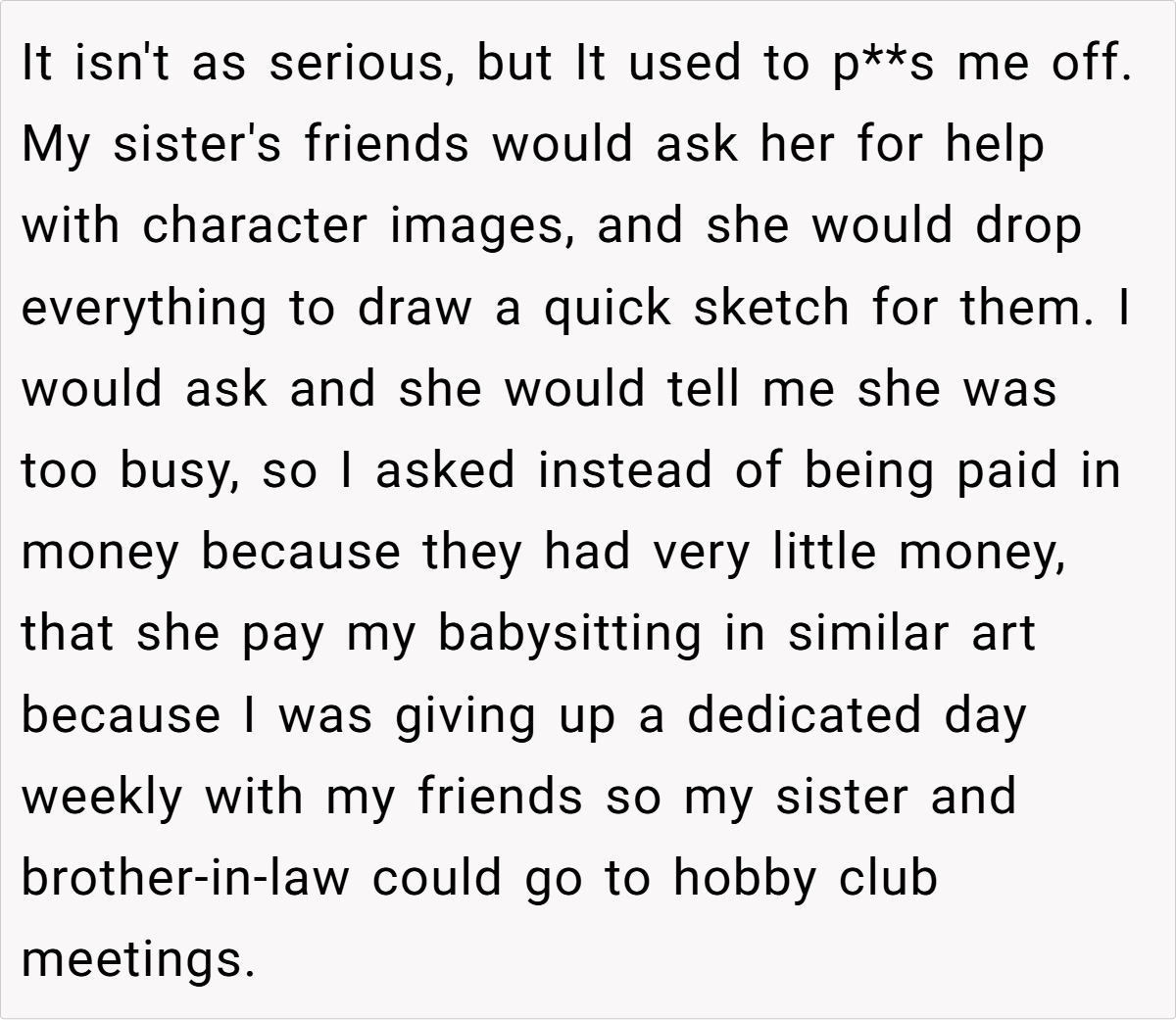
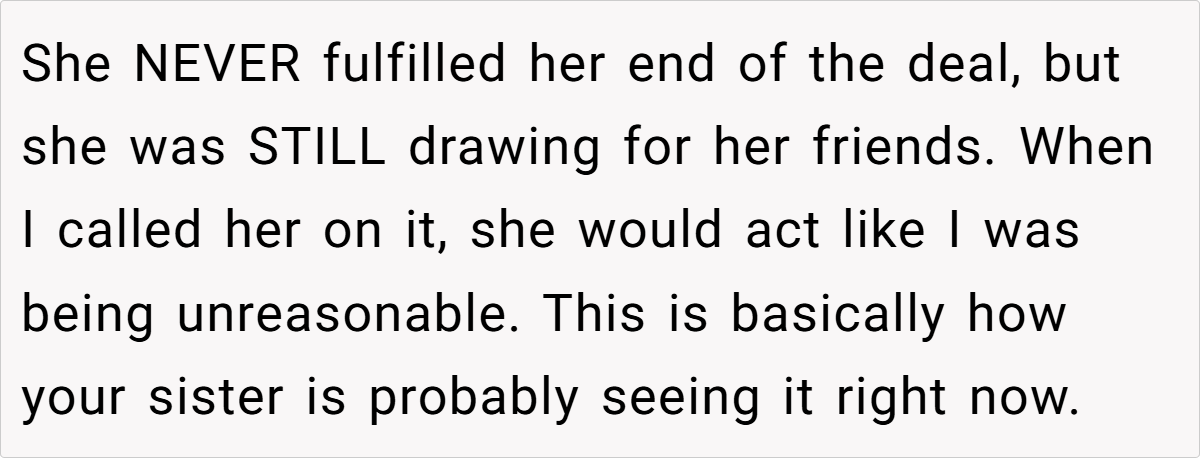
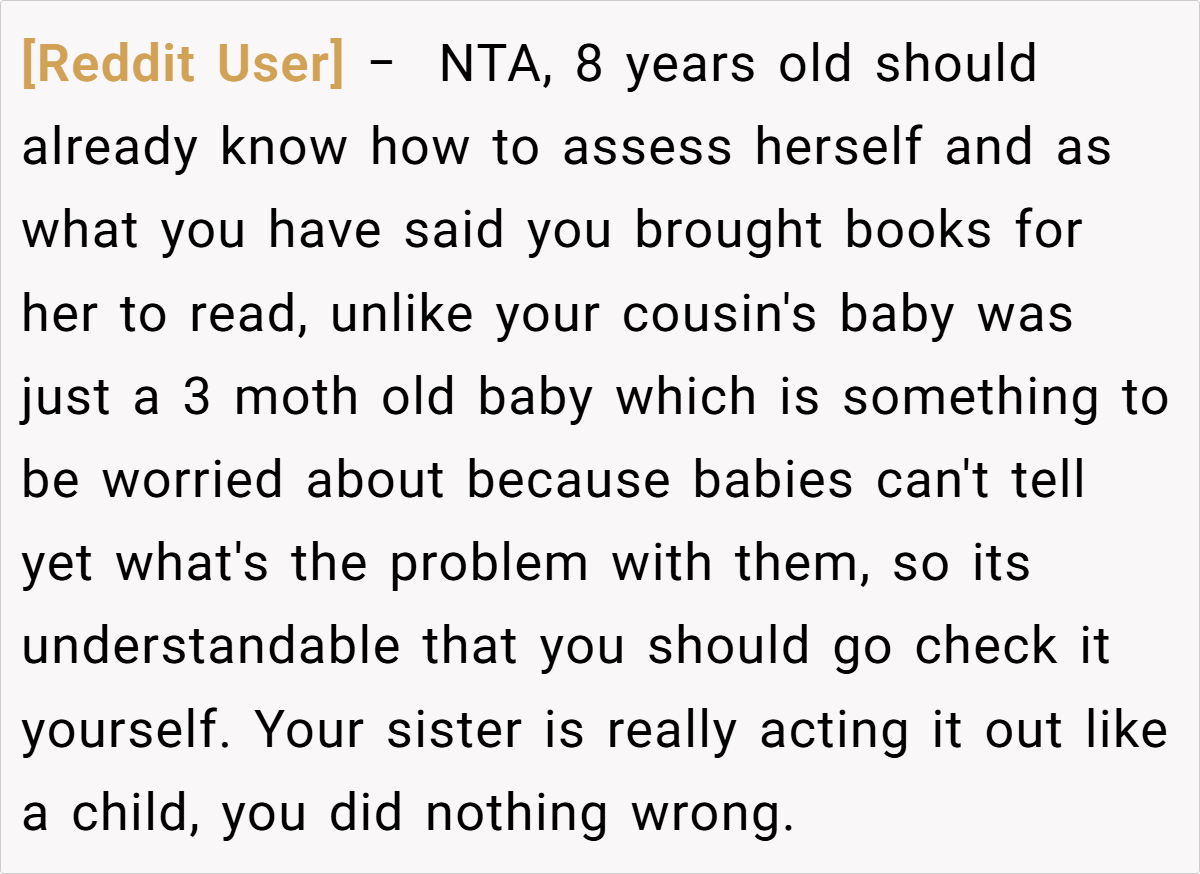
In conclusion, this incident highlights the ongoing struggle between familial love and professional duty. Our GP’s firm stance underscores the importance of boundaries, even when they come at a personal cost. How do you think professionals should navigate these tricky waters? What would you do if faced with similar expectations from family members? Share your thoughts and experiences, and join the conversation on balancing care with commitment to ethical practice.

